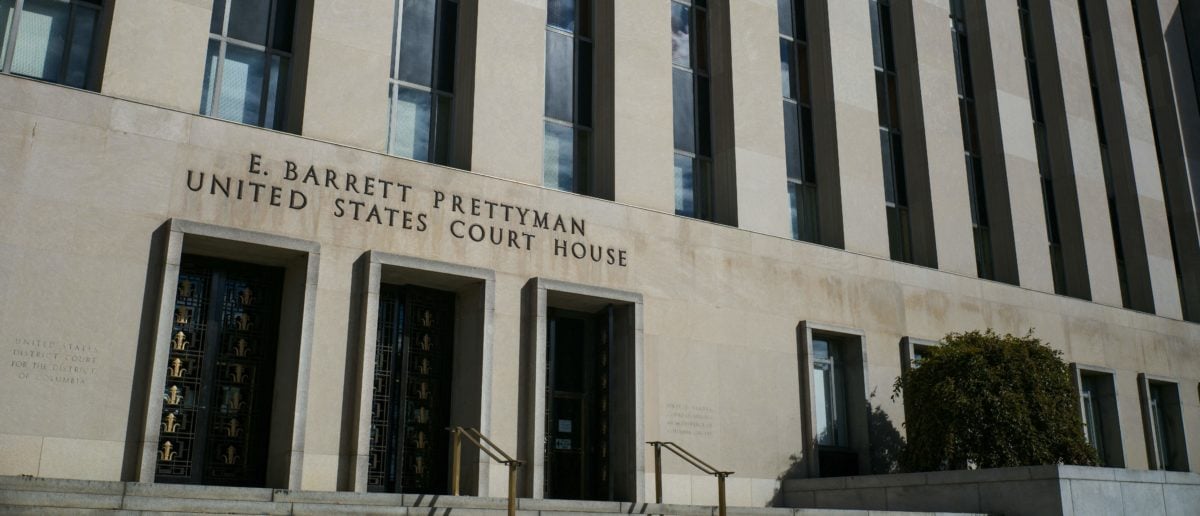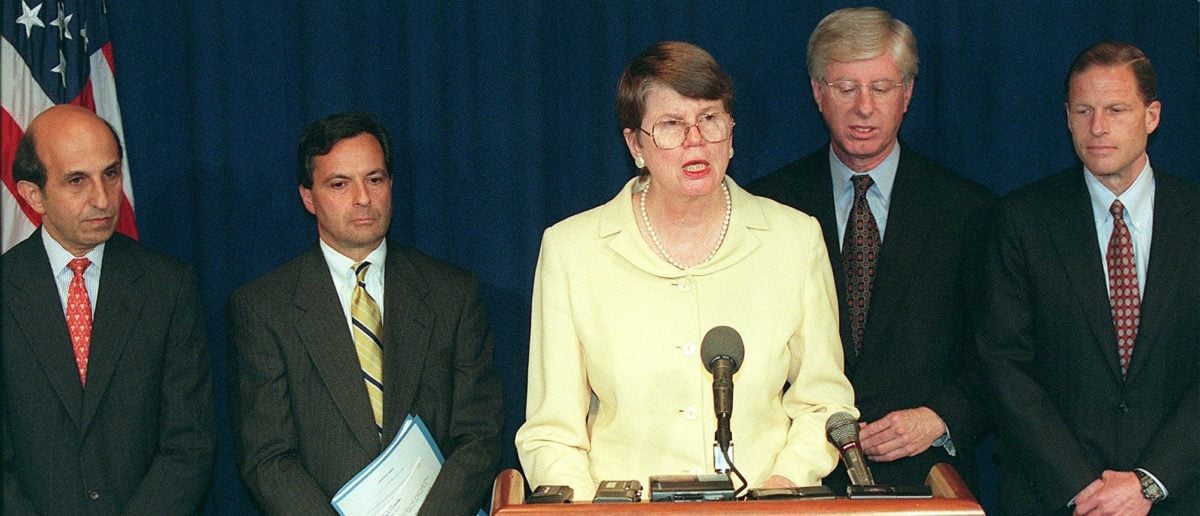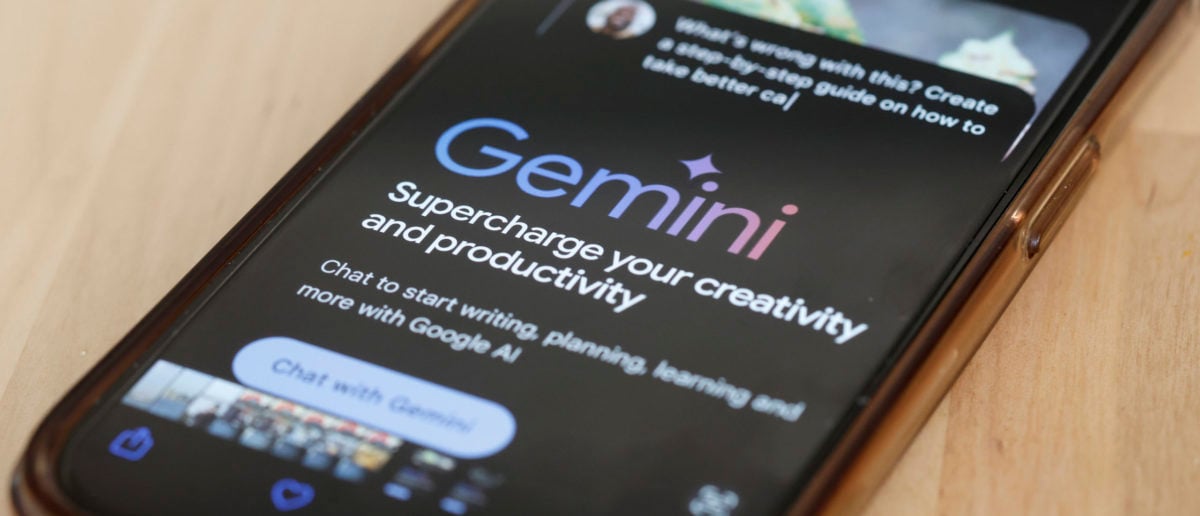Google’s search engine empire could face a serious reckoning as the Justice Department’s landmark antitrust case entered its remedies phase Monday, handing a federal judge the power to dismantle the tech behemoth’s illegal monopoly over how users discover information online.
The U.S. District Court for the District of Columbia already ruled in August that Google illegally maintained a “monopoly” in general search markets, mainly through billion-dollar deals to secure exclusive default status on mobile devices and browsers. Now, Judge Amit Mehta will decide how far the government can go to unwind said monopoly — with potential remedies ranging from prohibiting exclusivity agreements to forcing divestiture of Chrome or Android, interventions that could deliver a serious blow to the company’s entire business model. (RELATED: Clinton-Appointed Judge Deals Crushing Antitrust Blow To Google’s Ad Empire)
“You’re ultimately trying to resolve the particular harm that you’ve seen,” Luke Hogg, director of technology policy at the Foundation for American Innovation, told the Daily Caller News Foundation. “And whether or not Google’s control of Chrome or Google’s control of Android is contributory to their general size and market position is secondary to questions of how that actually helped in their monopolization of search.”

The E. Barrett Prettyman United States Courthouse is seen in Washington, DC on October 16, 2023. (Photo by MANDEL NGAN/AFP via Getty Images)
Mehta’s forthcoming remedy could bar Google from continuing exclusivity deals with Apple, Samsung and Android device manufacturers — a core part of the company’s current business model. Though the DOJ doubled down in March on pursuing more drastic measures, like forcing Google to spin off Chrome or Android entirely, Hogg said that’s unlikely to happen.
“There’s middle ground points where you can get to greater competition in those markets without totally spinning it off,” Hogg said, pointing to historical precedent. “If you go back and look at the Microsoft case and the consent decree there, they get to this middle ground point where there’s a lot of openness requirements, interoperability requirements, banning of exclusivity deals and things like that.”
Hogg was referencing the DOJ’s 1998 lawsuit against Microsoft, which charged the company with using its dominance in PC operating systems to crush rival Netscape by bundling Internet Explorer with Windows. Though the court initially ordered a breakup, the case ultimately ended in a consent decree that imposed interoperability rules and banned certain exclusivity deals — a potential blueprint for reining in Google without tearing it apart.

US Attorney General Janet Reno (C) speaks to reporters during a press conference 18 May at the US Department of Justice in Washington, DC concerning the filing of an antitrust suit by the US government and attorneys general from 20 US states and the District of Columbia, against computer software giant Microsoft. (Photo by TIM SLOAN/AFP via Getty Images)
Such a ruling — that is, enforcing interoperability requirements and exclusivity bans rather than forcing breakups or divestiture — could rattle Google’s financial relationships with key partners, particularly Apple, Samsung and Mozilla — companies that have long enjoyed billion-dollar benefits from default placement deals. Apple previously indicated it would likely keep Google as the default search engine on Safari even without those payments, but the end of such arrangements would still cut off a highly lucrative revenue stream. Google paid Apple $20 billion to remain the default search engine on Safari in 2022, according to Apple’s December motion to intervene in the case.
“If this court prohibits Google from sharing revenue for search distribution, Apple would have two unacceptable choices,” Eddy Cue, Apple’s senior vice president of services, wrote in his declaration of support for the motion. “It could still let users in the United States choose Google as a search engine for Safari, but Apple could not receive any share of the resulting revenue, so Google would obtain valuable access to Apple’s users at no cost. Or Apple could remove Google Search as a choice on Safari. But because customers prefer Google, removing it as an option would harm both Apple and its customers.”
Mozilla may face far greater disruption. The company derives a significant portion of its annual revenue — some 85% in 2023, according to Fortune — from its exclusivity deal with Google, a dependency that could become an existential liability if the court bans such agreements outright.
Samsung, meanwhile, could have more freedom to strike its own deals if Google is forced to separate Android from its other services. But untangling those tightly linked agreements could create new headaches for phone makers used to getting everything — the operating system, the browser and the search engine — in one package.

NEW YORK, NEW YORK – MARCH 18: In this photo illustration, Gemini Ai is seen on a phone on March 18, 2024 in New York City. (Photo Illustration by Michael M. Santiago/Getty Images)
But while the courtroom battle focuses on Google’s grip over traditional search, the future of the industry may already be slipping beyond the company’s control. The rise of artificial intelligence-powered tools like ChatGPT, Claude and Perplexity is beginning to shift how users interact with information online — away from keyword-driven search results and toward conversational, context-aware answers.
“The search market is not what it was when this case started,” Hogg said. “But that also doesn’t mean that Google’s monopolistic practices aren’t problematic.”
Google, long viewed as a leader in AI research, has released a competitive model in Gemini, but is facing strong headwinds from faster-moving rivals like OpenAI and Anthropic, who continue to beat Google across several key benchmarks, according to Stanford University’s 2025 AI Index Report.
Hogg argued the company’s dominance in traditional search may have discouraged it from more aggressively pursuing its own breakthrough tools.
“They were developing what eventually became Gemini four, five, six years ago,” Hogg continued. “But instead of launching it, they kind of held off until OpenAI jumped onto the scene. The reason they weren’t investing as heavily and not willing to go to the levels outside companies were going to go is because of the clear competition to their search monopoly.”
Under the Biden administration, the DOJ initially proposed in November that Google divest its AI investments, including stakes in companies like Anthropic, to prevent further entrenchment of its search monopoly. As of March, however, the Trump administration’s DOJ is now only requiring Google to give advance notice of future AI investments — a shift toward a more hands-off approach under President Donald Trump, though concerns still remain. (RELATED: There’s A ‘Deeply Dangerous’ Arms Race Emerging On Global Stage)
“We believe that Google can and will attempt to circumvent the court’s remedies if [AI provisions are] not included,” DOJ prosecutor David Dahlquist told Mehta in court Monday, according to Fortune. “Gen AI is Google’s next evolution to keep their vicious cycle spinning.” A written transcript of proceedings has not yet been publicly released.
Assistant Attorney General Gail Slater Delivers Remarks Before Opening Arguments in Google Search Remedies Trialhttps://t.co/4RA7Gpso2m
— Antitrust Division (@JusticeATR) April 21, 2025
Still, the central question is whether any remedy — no matter how well-crafted — can land quickly or forcefully enough to matter in a search market already being reshaped, or replaced, by AI. Hogg such remedies can, but only if paired with real competitive pressure.
“It’s going to end up being this confluence of remedies against Google plus innovation in the market,” Hogg said. “Maybe we’ll see in five, six, seven years that Google Search will kind of be like Yahoo — everybody remembers it was that huge thing, but now everybody’s using Perplexity or whatever.”
The case also comes at a politically volatile moment for Big Tech. Originally filed under Trump, the lawsuit moved forward under former President Joe Biden and has now re-escalated under Trump’s second term. Key regulatory appointees — including Federal Trade Commission (FTC) Chairman Andrew Ferguson, a longtime skeptic of Silicon Valley consolidation — have signaled a more aggressive stance toward digital monopolies, even as the administration’s DOJ softens some of its earlier demands.
Just last week, Google was dealt another blow when a federal judge ruled it had illegally used its dominance in digital advertising to edge out competitors — a separate case with implications that could lead to further structural remedies. Meta, too, remains locked in an antitrust battle with the FTC over its acquisition of Instagram and WhatsApp, underscoring that Google’s trial is just one front in a much larger war.
However Mehta rules in the coming months, the outcome will demonstrate how far the government is willing, and able, to go in challenging the foundations of Silicon Valley’s power.
All content created by the Daily Caller News Foundation, an independent and nonpartisan newswire service, is available without charge to any legitimate news publisher that can provide a large audience. All republished articles must include our logo, our reporter’s byline and their DCNF affiliation. For any questions about our guidelines or partnering with us, please contact licensing@dailycallernewsfoundation.org.



![NYC Tourist Helicopter Falls into Hudson River, Siemens Executive and Family Among Those Killed [WATCH]](https://www.right2024.com/wp-content/uploads/2025/04/NYC-Tourist-Helicopter-Falls-into-Hudson-River-Siemens-Executive-and-350x250.jpg)





![Biden Drops Racial Slur During First Public Speech Since Leaving Office [WATCH]](https://www.right2024.com/wp-content/uploads/2025/04/Biden-Drops-Racial-Slur-During-First-Public-Speech-Since-Leaving-350x250.jpg)






